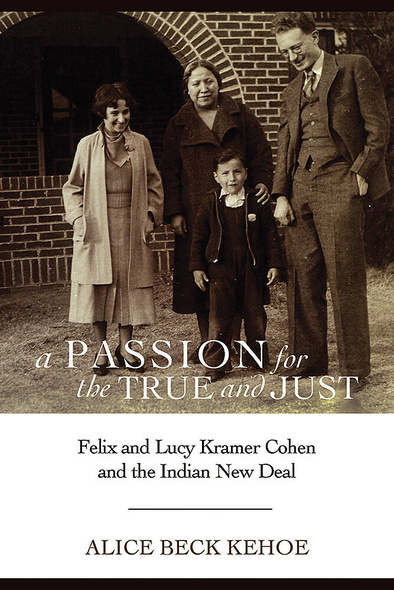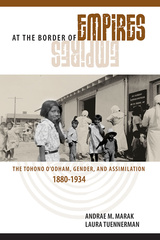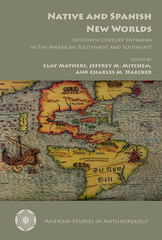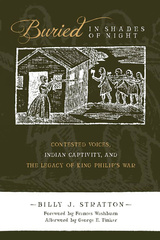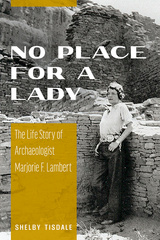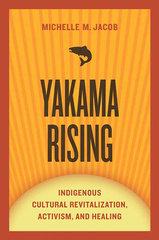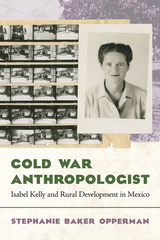A Passion for the True and Just
Felix and Lucy Kramer Cohen and the Indian New Deal
The University of Arizona Press
Felix Cohen, the lawyer and scholar who wrote TheHandbook of Federal Indian Law (1942), was enormously influential in American Indian policy making. Yet histories of the Indian New Deal, a 1934 program of Franklin D. Roosevelt’s New Deal, neglect Cohen and instead focus on John Collier, commissioner of Indian affairs within the Department of the Interior (DOI). Alice Beck Kehoe examines why Cohen, who, as DOI assistant solicitor, wrote the legislation for the Indian Reorganization Act (1934) and Indian Claims Commission Act (1946), has received less attention. Even more neglected was the contribution that Cohen’s wife, Lucy Kramer Cohen, an anthropologist trained by Franz Boas, made to the process.
Kehoe argues that, due to anti-Semitism in 1930s America, Cohen could not speak for his legislation before Congress, and that Collier, an upper-class WASP, became the spokesman as well as the administrator. According to the author, historians of the Indian New Deal have not given due weight to Cohen’s work, nor have they recognized its foundation in his liberal secular Jewish culture. Both Felix and Lucy Cohen shared a belief in the moral duty of mitzvah, creating a commitment to the “true and the just” that was rooted in their Jewish intellectual and moral heritage, and their Social Democrat principles.
A Passion for the True and Just takes a fresh look at the Indian New Deal and the radical reversal of US Indian policies it caused, moving from ethnocide to retention of Indian homelands. Shifting attention to the Jewish tradition of moral obligation that served as a foundation for Felix and Lucy Kramer Cohen (and her professor Franz Boas), the book discusses Cohen’s landmark contributions to the principle of sovereignty that so significantly influenced American legal philosophy.
Kehoe argues that, due to anti-Semitism in 1930s America, Cohen could not speak for his legislation before Congress, and that Collier, an upper-class WASP, became the spokesman as well as the administrator. According to the author, historians of the Indian New Deal have not given due weight to Cohen’s work, nor have they recognized its foundation in his liberal secular Jewish culture. Both Felix and Lucy Cohen shared a belief in the moral duty of mitzvah, creating a commitment to the “true and the just” that was rooted in their Jewish intellectual and moral heritage, and their Social Democrat principles.
A Passion for the True and Just takes a fresh look at the Indian New Deal and the radical reversal of US Indian policies it caused, moving from ethnocide to retention of Indian homelands. Shifting attention to the Jewish tradition of moral obligation that served as a foundation for Felix and Lucy Kramer Cohen (and her professor Franz Boas), the book discusses Cohen’s landmark contributions to the principle of sovereignty that so significantly influenced American legal philosophy.
With this engaging biography of both Cohens, distinguished anthropologist Kehoe adds a unique interpretive layer to the existing accounts of the couple's work and legacy.’—Choice
‘Kehoe’s vivid portrayals bring the Progressive and New Deal eras to life.’—American Anthropologist
‘The book does a good job placing the Indian New Deal’s legal innovations in the broader context of Boasian anthropology, legal realism, anti-Semitism, and Jewish intellectual and academic achievement.’—Western History Quarterly
‘Alice Kehoe has written an important addition to past and present attempts to scrutinize anthropology’s relationship with US governmental practice. It suggests the importance of looking beyond typical objects of analysis and toward spaces and individuals that might otherwise not be marked as ‘anthropological.’’—History of Anthropology Newsletter
Alice Beck Kehoe is a professor emerita of anthropology at Marquette University. Her books include Militant Christianity: An Anthropological History, Controversies in Archaeology, The Ghost Dance: Ethnohistory and Revitalization, and The Kensington Runestone: Approaching a Research Question Holistically.
Acknowledgments
Introduction
1. The Indian New Deal
2. The Indian Reorganization Act
3. “Frankfurter’s Jewish Cabal”
4. Felix and Lucy
5. The Handbook of Federal Indian Law
6. The Indian Claims Commission
7. The Consequences of Being Jewish
8. Felix Cohen’s Awakening
9. Of Counsel to Tribes
10. Sovereignty: Not So Simple
11. Jewish Science, Philosophy, and Jurisprudence
12. The White Man, the Jew, and the Indian
Notes
Sources by Chapter
Bibliographic Essay: Sources for This Book
Bibliography
Index

